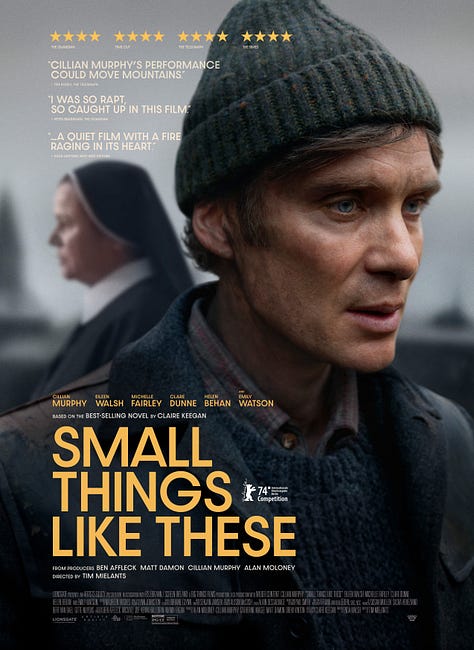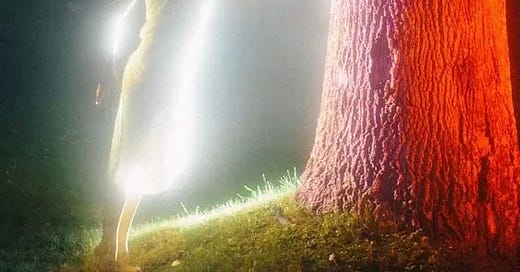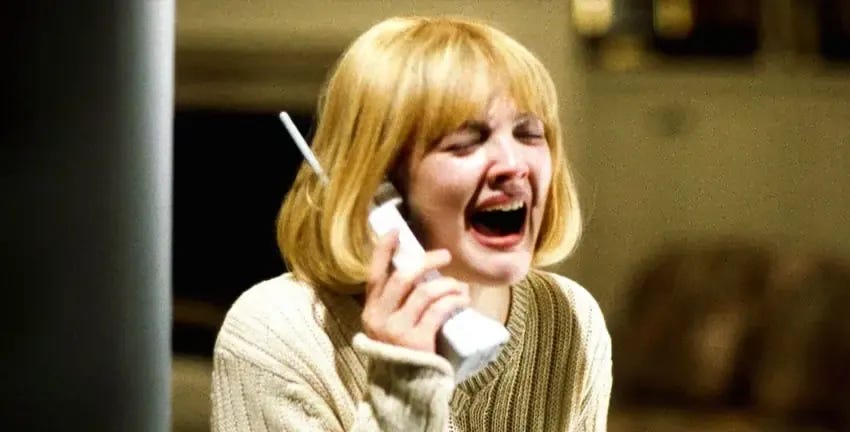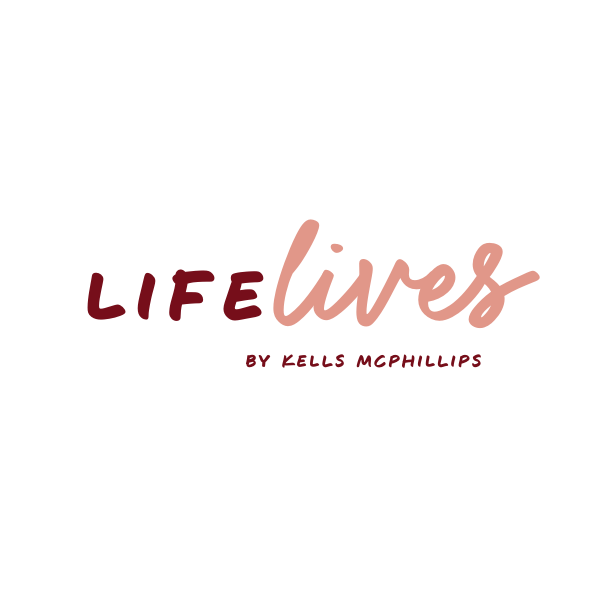“It feels like all my life experiences are stripped away simply because I haven’t had enough of them,” I wrote in an article published in 2019. I was 23 at the time and yearning to be not just smart but wise, emboldened by time into believing the legitimacy of my own experiences.
The story called for an “intergenerational ceasefire” and included a psychologist’s tips for fostering conversations between generations. I was the youngest on the editorial team, and I was *sick* of hearing that I wasn’t old enough to understand x, y, or z. For the most part, my colleagues always made me feel smart and deserving of my place at the table. But outside the office, I felt like an oversized infant tottering around New York City, breaking things and misinterpreting the world around me.
Five years later, I’m pretty sure this feeling was a “the call is coming from inside the house situation.” I projected my self-doubt onto other people. I papered the world with a thousand flyers that read: You know nothing. But I’ll give my younger self the benefit of the doubt and say there was some legitimacy to my frustration.
At the time the article was published, I’d spent two years covering the Trump administration (the first one, womp womp womp), and felt a keen sense that a whole lot of life was happening to me.
Every day, a surge of information entered my mind. Restrictions on abortion medication, threats to LGBTQ+ rights, and every atrocity in between. I wrote quick news articles and felt like an ever-expanding sponge. I was so full of the world, so full of America. So when people told me I didn’t know anything, I thought, how couldn’t I? I’ve spent my whole adult life absorbing.
What I’m learning is that absorbing everything isn’t the same thing as being wise.
I’ll say that again (because I need to hear it one hundred times).
Absorbing every podcast, news article, and TikTok video isn’t the same as being wise.
I think American culture conflates data with wisdom. We’re so filled with information, misinformation, and disinformation that we’ve devalued the pause after consumption. The moment when you hold that information up to your mind and ask, What do I think? What might I be missing? What are the next steps for understanding X topic?
Every quarter, I look forward to the craft essay in The Sewanee Review, and this month’s piece — “The Profoundest Interruption: In Defense of Distraction” by Caitlin Horrocks — felt especially apt for the moment. Horrocks recommends we reframe how we think about distractions in life and literature.
“During the Enlightenment, attention was seen as a crucial aid to reason, but not one that humans possessed automatically: the ability to pay sustained, focused attention was something to be cultivated by pedagogical programs, and put to demanding tests,” she writes.
Over time, psychology has shown us that humans aren’t built for unyielding focus (productivity books be damned), but we do have access to what Ross Gay calls “fleeting intense attention.”
You can probably guess that, by this, she doesn’t mean an endless stream of political news. What she means is a devotion to the distractions of daily life. The cat rubbing against your legs as you stand by the stove frying eggs, the person you love opening the door and interrupting you reading, the chime of the dryer announcing your clothes are ready to be folded. Offering our “fleeting intense attention” to such moments is akin to hitting pause. For a moment, we’re back in our bodies. Not just absorbing but processing.
I always pass a retirement home on my way home from the library. A man who lives there plants his wheelchair on the sidewalk out front so he can wave at people as they pass by. I’m always in a rush, so he mimics me with comically large arm swings. He smiles; I smile back.
Last Thursday, I decided to stop and say hello. I introduced myself and quickly realized this man could no longer speak. His words blurred together, stalled, muted. I somehow gathered that he was telling me a story about how his family had immigrated to America. Ten minutes passed of him speaking and me, standing there, not understanding.
I wondered why I’d stopped. I wondered how I could communicate to this man that, even though I couldn’t understand him, I was here, trying. Eventually, I said goodbye, and he told me his name. That, I understood: Manuel.
To 23-year-old Kells, I would say: Don’t let the internet be the only thing that distracts you. Knowing every possible data point about a certain incoming administration won’t help you wrap your arms around the world, around humanity.
“Our porousness, our capacity for distraction, seems to me as good a definition as any for what it means to be alive as human being in the world.” - Horrocks
Wisdom is a long game. It takes a lifetime of identifying and seeking the distractions that make you feel truly you, truly human. But wisdom also means not giving yourself a hard time when those distractions aren’t wholly “pure” or “beneficial.” Look for the pause after a moment. Sit there for a while in the aftermath of distraction.
A ‘Distraction’ From My Diary
Tonight Noah and I were walking to see a movie, Anora. There's an ice skating rink on our way that we've been meaning to go to every year since we moved here. And tonight, a girls high school skating was performing a routine to Chappell Roan’s "Hot to Go." We stopped to watch.
They looked so free and confident as they moved across the ice, trying hard and loving the hardness of trying. When the song ended, I was crying. And I said to Noah, “Girls deserve so much better.” Because we do, we deserve so much better.
Noah put his hand around my shoulders and agreed. We went to the movie.



Small Things Like These ~ In this movie, an Irish coal merchant witnesses the cruelty of the Catholic Church in his hometown and must decide whether to act or stand by. I loved every minute of this exceptionally rich movie based on the eponymous Claire Keegan novel, which I plan to read over Thanksgiving.
Ongoingness, Sarah Manguso ~ After reading and loving Liars earlier this year, I was delighted to find another Manguso book on my shelf. In this short work, Manguso contemplates the diary she’s kept for 25 years and how no piece of writing (even the ones we are most devoted to) can ever truly capture the passing of time.
The Sewanee Review ~ For the hundredth time, I want to recommend subscribing to TSR. Nothing brings me more joy than opening my mailbox and finding the latest edition, and I recommend it to anyone who loves short fiction, poetry, and killer craft essays.
Trader Joe’s Sipping Chocolate ~ Lately, I’ve loved drinking a cup of this stuff after dinner. It’s rich and chocolatey (not watery and bleh like the Swiss Miss bullshit of my youth). Highly recommend.
Thank you, as always, for reading Life Lives! If you haven’t subscribed yet, pay whatever you can. It helps me continue to do the work I love.
If you haven’t already downloaded the Substack app, I highly recommend it.
The app is how you’ll access the full value and experience of your subscription to Life Lives.















Simply wonderful.